Politics and Government: Organizations and Institutions
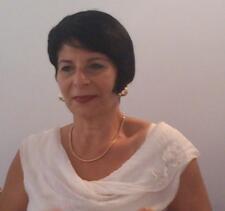
Orit Adato
Orit Adato has held many roles throughout her career in security, from head of the Israeli Women’s Corps to Commissioner of the Israel Prison Service. After twenty-eight years of work in security, twenty-four of which were in the IDF, Adato retired with the rank of lieutenant general and founded her own international consultancy firm on security.

Helen Goldmark Adler
Helen Goldmark Adler is remembered for her philanthropic achievements and her marriage to Felix Adler, philosopher and founder of the Ethical Culture Movement. In turn-of-the-century New York, Adler penned articles, established a free kindergarten for children with working-class parents, and founded an organization focused on the science of child-rearing.
Racie Adler
Racie Friedenwald Adler helped shape a number of Jewish institutions, most significantly the Women’s League for Conservative Judaism. As the Women’s League vice president, she helped establish Jewish student houses on campuses, the forerunners of modern Hillel houses.
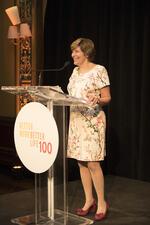
Advancing Women Professionals in the Jewish Community
Advancing Women Professionals and the Jewish Community (AWP) was founded by Shifra Bronznick in 2001 as an intervention “to advance Jewish women into leadership, stimulate new models of shared leadership, and promote policies for healthy, effective workplaces.” Over fifteen years, AWP conducted groundbreaking research and adapted strategies from other sectors that engaged women and men in decisive, systems-based change.
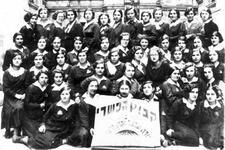
Agudat Israel: Interwar Poland
Agudat Israel, the world movement of Orthodox Jewry, introduced substantial reforms that changed the status of women in Orthodox society. In particular, the Bais Ya’akov model pioneered by Sarah Schenirer focused on women’s education as a way of creating a more robust Orthodox community against the pressures of modernity.
Miriam Albert
Miriam Albert became the first national president of B’nai B’rith Young Women in 1946. In the thirty years she served the organization, she helped increase its membership to 150,000, and she was praised for both her warmth and her leadership.
Ruth Aliav-Klüger
Ruth Aliav-Klüger was the only woman among the early members of Mosad le-Aliyah Bet, the “illegal” immigration branch of the underground paramilitary organization Haganah that smuggled Jews out of Europe and into Palestine during World War II.
Anna Marks Allen
Anna Marks Allen was part of a group of Philadelphia Jewish women who established and ran the first independent Jewish charitable societies in the United States. At a time when congregational Jewish life was restricted to men, Jewish women of Allen’s social status increasingly turned towards philanthropy as a way to participate in the public life of the Jewish community.
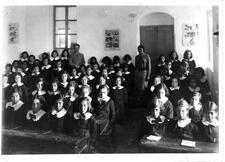
Alliance Israélite Universelle, Teachers of
Founded in 1860 by six French Jewish intellectuals, the Alliance Israélite Universelle set out to teach Jewish children at schools all over the world. The diverse group of teachers in the Alliance carried out the organization’s mission, but its women teachers were particularly impactful in criticizing the leaders’ patronizing attitudes and pushing for female empowerment.
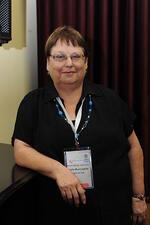
Hedva Almog
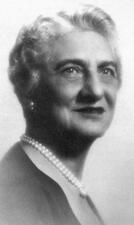
Rose Haas Alschuler
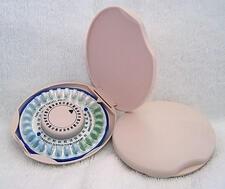
American Birth Control Movement
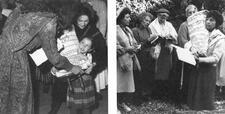
American Jewish Congress
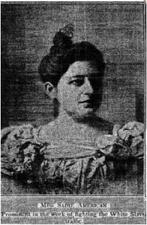
Sadie American
Forceful, dedicated, and brash, Sadie American shaped the National Council of Jewish Women for more than twenty years before resigning and severing all ties with the organization. As one of the Council’s founders, American organized local sections and represented the group nationally and internationally, generally building up the organization.
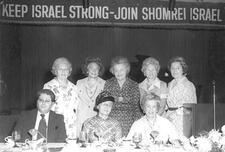
AMIT
Jenny Apolant
An ardent suffragist, Jenny Apolant served as a board member of the General Association of German Women from 1910 to 1925. In Frankfurt, she was one of the first women municipal councilors from 1919 to 1924, founded the Political Workers Association in 1922, and strove to improve the condition of women through profound social change.

Shoshana Arbeli-Almozlino
From her upbringing in a traditional Iraqi family to her work in the Knesset and as Israeli Minister of Health, Shoshana Arbeli-Almozlino’s life spanned countries, careers, and experiences. She will be remembered as an active member of Knesset who fought for the rights of the working class and for the equal status of women in Israeli law.
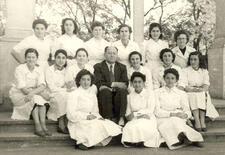
Argentina: Jewish Education
Over the course of the twentieth century, Jewish educational opportunities expanded for girls and teaching as an occupation became a possibility for Jewish women in Argentina. The 1920s saw the first female teachers in Jewish schools, and by the end of the 1950s, seventy percent of teachers were locally-trained women.
Argentina: Philanthropic Organizations

Argentina: Sephardic Women

Argentina: Zionist Activities
Jeannette Arons

Art in the United States

Assimilation in the United States: Nineteenth Century

Assimilation in the United States: Twentieth Century
Jewish women assimilating into a changing American society across the twentieth century navigated often conflicting gender roles. As they strove to achieve upward social mobility, they adapted Jewish assumptions of what women, especially married women, should do to accommodate American norms for middle class women. Their collective accomplishments registered in political activism, organizational creativity, strong support for feminism, religious innovation, and educational achievement in the face of antisemitism, stereotypes, and denigration.


